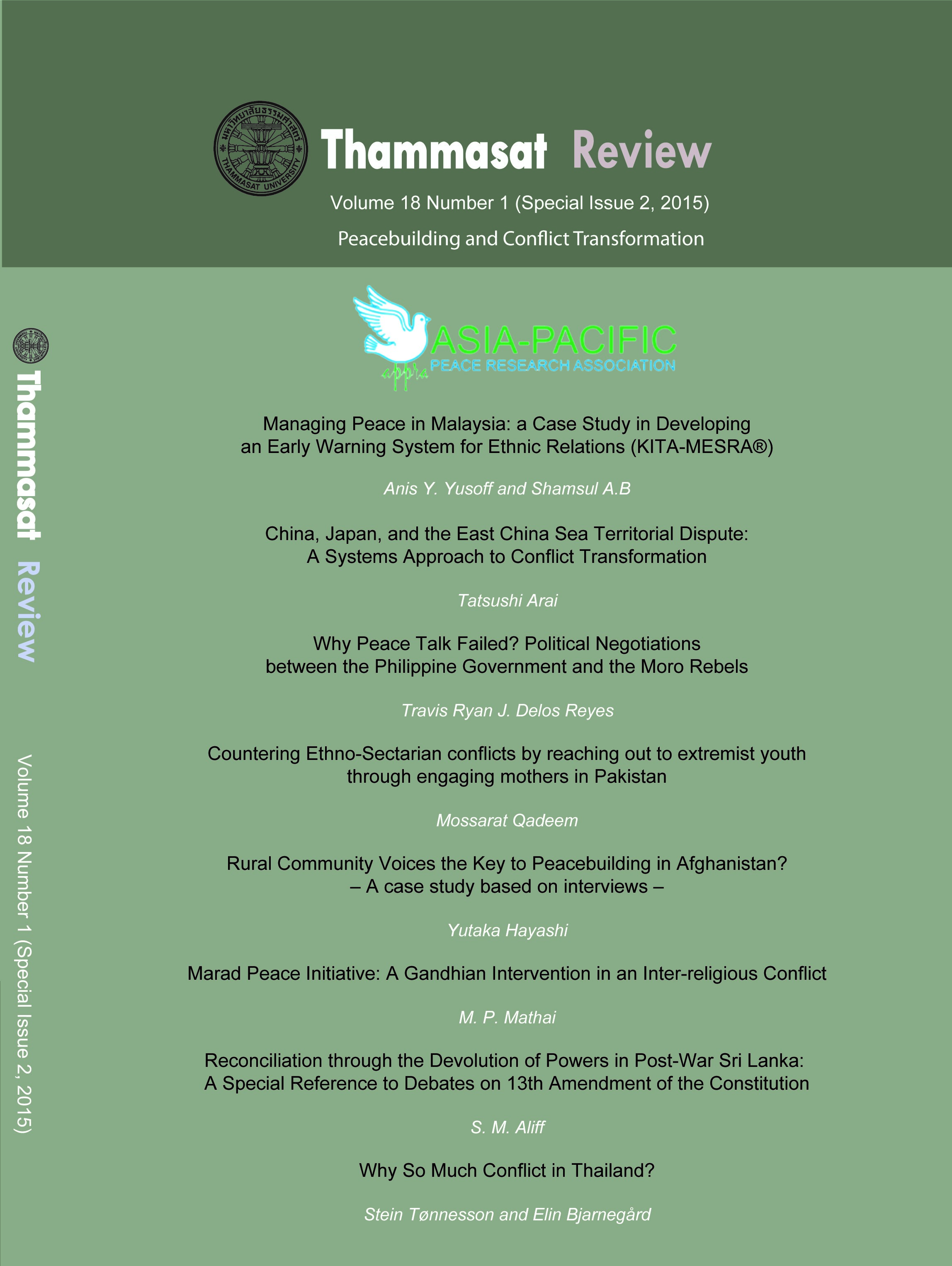Reconciliation through the Devolution of Powers in Post-War Sri Lanka: A Special Reference to Debates on 13th Amendment of the Constitution
Abstract
Reconciliation is a more forward-looking process of healing divisions between and within communities. It requires recognition of others’ grievances and experiences and changes in policies that may have worsened the conflict or prevented greater cohesion. In the history of ethnic conflict in Sri Lanka, ethnicization of politics and politicization of ethnicity have become very common. The politicization of ethnic and religious revivalism as also assertion of various ethnic and regional identities is posing serious problems for the integrity of Sri Lanka. Post-colonial Sri Lanka followed strategies of modernity and economic progress. However, the modernization and development process led to the centralization of development progress. The negative connotation of such centralization was the manifestation of discriminatory attitudes in terms of ethnicities and region. Discriminatory distribution of rights and privileges together with the arbitrary attitude of power elites led to a feeling of deprivation among minority ethnic groups. The Sinhala elites largely failed to strengthen the democratic institutions by decentralizing political economic power. Instead, they responded by strengthening and using coercive powers to preserve regime interests against minorities which paved the way for a civil war. Four years since the end of civil war against the Liberation Tigers of Tamil Eelam (LTTE), Sri Lanka is farther from reconciliation than ever. Devolution of power to the north and east is essential to for sustainable peace. It has become no less urgent with the defeat of the LTTE; indeed, the end of the war and the return of normalcy in those areas make real power sharing all the more important. In this context, the government has essentially rejected the need for any political solution or power sharing with the Tamil-speaking-majority in North and East under the 13th amendment. This is a remarkable change from previous governments. The current chaos on devolution creates uncertainty and, therefore,
Thammasat Review 108
it is difficult to outline the future moves of the present government. But despite such problems, prospects for reconciliation through devolution should remain hopeful.
This study focuses on the current crisis of the 13th amendment of the constitution of the Sri Lanka. The prime objective of this study is to critically analyze the ongoing debates over the devolution of powers to minority under the 13th amendment. The fundamental questions of this research are the following: why does the present government deny provision of a reasonable devolution of power to minorities and its impact on reconciliation among the multi-ethnic society of Sri Lanka.
This research is a critical one based one interpretive analysis in which both quantitative and qualitative data have been used. Here, the stated purpose is being examined by studying both primary and secondary materials. This secondary data have been collected from books, reports, journals, news papers, official documents and research articles
Key Words: Ethnic Conflict, Politics of Sri Lanka, Reconciliation, Devolution of Power
Downloads
How to Cite
Issue
Section
License
The opinions and ideas expressed in all submissions published in Thammasat Review are solely that of the author(s) and do not necessarily reflect that of the editors or the editorial board.
The copyright of all articles including all written content and illustrations belong to Thammasat Review. Any individuals or organisation wishing to publish, reproduce and distribute a particular manuscript must seek permission from the journal first.






